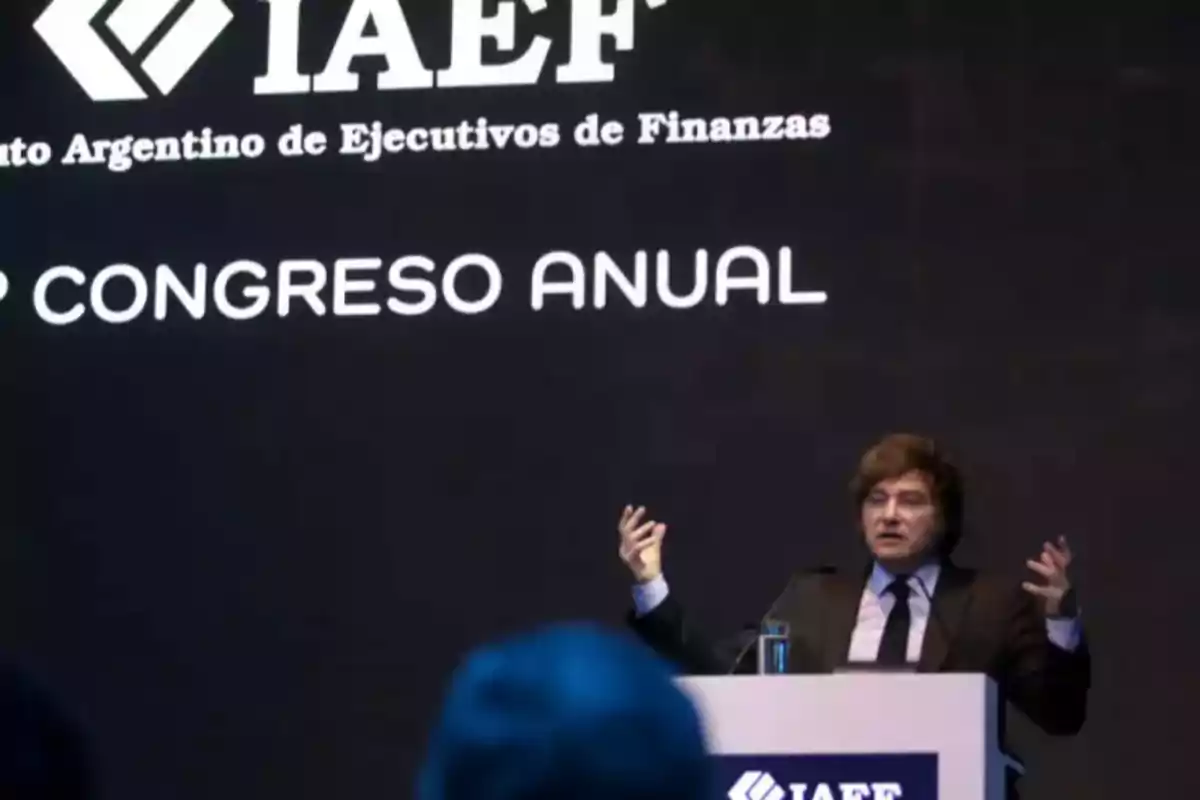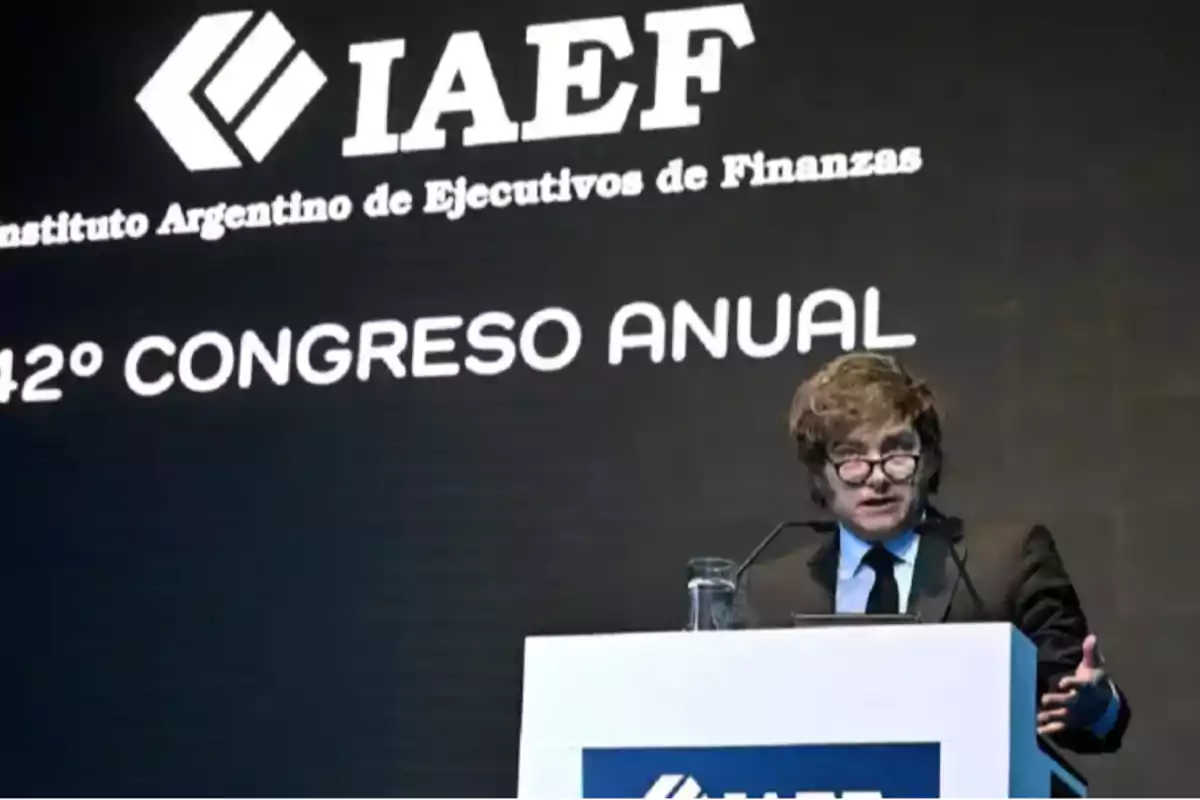
Argentina's Economic Rebirth: Milei's Roadmap for a Free Nation
From the IAEF, the president outlined a structural plan based on fiscal balance and monetary stability
In an international context of growing uncertainty and structural challenges, Argentina is going through a decisive moment. In this framework, President Javier Milei chose the 42nd Annual Congress of the Argentine Institute of Finance Executives (IAEF) to present, with technical solvency and political clarity, the economic compass of his government.
The speech, far from the empty rhetoric that has characterized national leadership for decades, focused on concrete measures that are already beginning to show results. “90% of the adjustment fell on the State and not on the private sector,” Milei assured, dismantling the traditional narrative that blames the market for the failures of interventionism. This statement is supported by an unprecedented reduction in the fiscal deficit in such a short time, achieved without issuing currency and without resorting to confiscations or forced controls.
What is remarkable is not only the precise diagnosis—something uncommon in Argentine politics—but the structural treatment being proposed. The libertarian government has achieved the first quarterly financial surplus since 2008, and it has done so without financial repression instruments. There was no Bonex Plan, no default, no deposit confiscations. Instead, there was a virtuous combination of fiscal austerity, relative price transparency, and cutting political privileges.

In a country where politics was synonymous with uncontrolled spending, Milei presents himself as the turning point: a president who dares to cut public spending without fear of electoral consequences. He not only challenges the status quo but also does so with a roadmap anchored in solid economic principles.
Endogenous dollarization, deregulation, and trust: the pillars of a new economic paradigm
One of the most innovative points of the speech was the explanation of an “endogenous dollarization,” that is, a natural transition to an economy where the peso ceases to be currency without the need to impose a forced convertibility law. Unlike rigid proposals of the past, Milei's idea starts from a basic principle: if the Central Bank stops issuing and the market trusts in macroeconomic stability, economic agents themselves will spontaneously choose to use a hard currency.
Endogenous dollarization doesn't imply an immediate substitution, but a process guided by economic rationality and freedom of choice. As the fiscal surplus consolidates, country risk falls, inflation subsides, and the Central Bank's liabilities are reduced, the peso loses its role as a unit of account and store of value. This is an evolutionary path toward a healthy economy open to the world.
The second highlighted pillar was the process of economic deregulation. With more than 350 reforms included in DNU 70/2023 and a package of laws aimed at freeing markets, the government seeks to remove the obstacles that have limited productivity, stifled entrepreneurship, and favored prebendary sectors for decades. As Milei emphasized, “inflation is a monetary phenomenon” but also “a moral disease,” fueled by the complicity between political sectors and business friends of power.

The bet is clear: to have free prices again, real competition, and a State that doesn't interfere in the allocation of resources. Only then can a truly capitalist economy flourish, where merit and efficiency replace cronyism and privilege.
The message to the business community was clear: this is the time to invest. The national administration is not only reducing regulatory risk but also offering an increasingly predictable institutional framework. Price stability, fiscal consolidation, and trade openness are clear signals for the financial and productive world.
The political value of technical coherence
Ultimately, Javier Milei's speech at the IAEF was not just another presentation. It was a discursive milestone that confirms that change is not an electoral slogan but a government program. The president has chosen the difficult path: that of telling uncomfortable truths, prioritizing fiscal responsibility, and defending, against all odds, the principles of economic freedom.
Argentina may be on the threshold of a historic transformation. Meanwhile, if economic actors respond with investments and commitment, the country has a real opportunity to leave behind decades of decline and embrace an era of growth, stability, and prosperity.
More posts: